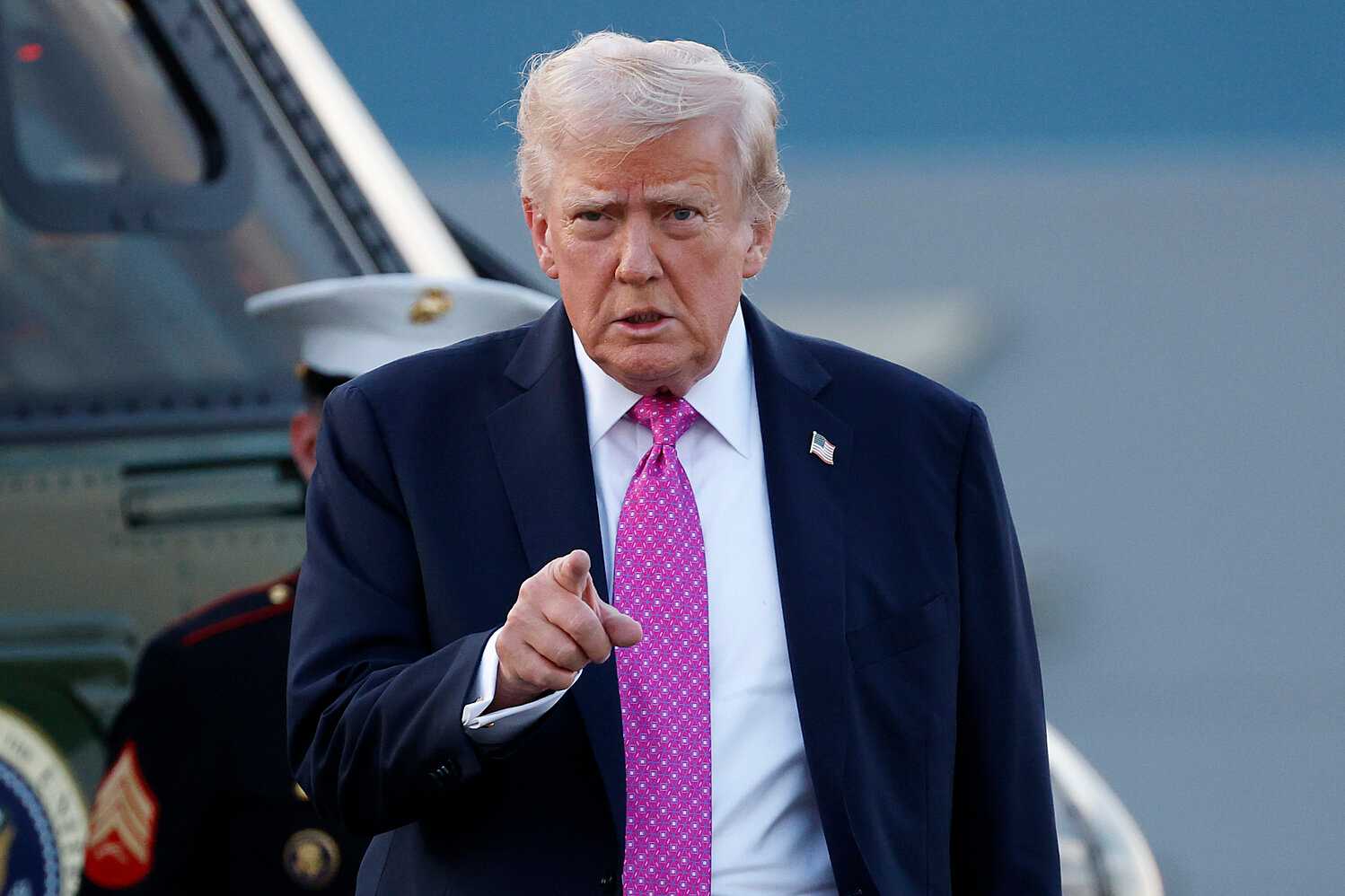The Department of Education’s recent clarification of what constitutes a “professional degree” under the Trump administration’s One Big Beautiful Bill Act has ignited significant controversy, particularly within the nursing community. Students enrolled in programs now excluded from the professional degree designation face reduced access to federal student loans, a move that critics warn could have long-term implications for the healthcare workforce and other professional sectors.
Under the act, students pursuing degrees deemed “professional” are eligible for a federal student loan limit of $200,000, while students in programs not classified as professional degrees are capped at $100,000 in loans. This distinction has drawn widespread attention due to the exclusion of nursing programs—a field considered foundational to the U.S. healthcare system. The decision has sparked outrage among professional organizations and educational institutions that argue the policy undermines decades of progress toward parity among health professions.
According to recent statistics, over 260,000 students are currently enrolled in Bachelor of Science in Nursing (BSN) programs across the United States, with an additional 42,000 pursuing Associate Degree in Nursing (ADN) programs. Nursing organizations warn that reducing financial support for these students could exacerbate existing shortages in the healthcare workforce, particularly in hospitals, long-term care facilities, and educational institutions where nurses serve as instructors for future generations.
Dr. Jennifer Mensik Kennedy, president of the American Nursing Association, voiced strong concern over the change. “Nursing is the backbone of the healthcare structure in the United States,” Dr. Kennedy stated. “We are already short tens of thousands of nurses and advanced practice nurses. Limiting financial access for students pursuing these degrees could hinder not only clinical practice but also the development of future nursing educators.”
The American Association of Colleges of Nursing (AACN) also issued a statement condemning the Department’s ruling. “Excluding nursing from the definition of professional degree programs disregards decades of progress toward parity across the health professions,” the AACN emphasized. “It contradicts the Department’s own acknowledgment that professional programs are those leading to licensure and direct practice. Should this proposal be finalized, the impact on our already-challenged nursing workforce would be devastating.”
The Department of Education has maintained that its decision reflects long-standing definitions of professional degrees, citing historical precedent and consensus among committee members representing higher education institutions. Ellen Keast, press secretary for higher education, explained the rationale behind the designation: “The Department has had a consistent definition of what constitutes a professional degree for decades. The committee, which included institutions of higher education, agreed on the definition that we will put forward in a proposed rule.”
Keast further stated, “We’re not surprised that some institutions are crying wolf over regulations that never existed because their unlimited tuition ride on the taxpayer dime is over.” The department’s position underscores an ongoing effort to clarify federal loan eligibility and maintain consistency in the classification of professional degrees.
Currently, the Department has identified several occupations as falling under the professional degree category, including medicine, pharmacy, law, dentistry, osteopathic medicine, optometry, podiatry, chiropractic, veterinary medicine, theology, and clinical psychology. Conversely, programs for physician assistants, physical therapists, educators, social workers, audiologists, architects, accountants, and nurses are not included. This delineation has prompted questions regarding the criteria used to determine professional status and whether the exclusion of certain fields aligns with the evolving demands of the workforce.
Experts in higher education policy note that the decision has both financial and workforce implications. Limiting loan eligibility for nursing students may reduce enrollment in programs critical to meeting national healthcare needs. “Financial accessibility is a key factor in a student’s decision to enter demanding professional programs,” said Dr. Robert Chen, a healthcare policy analyst. “By restricting funding for nursing students, the administration risks exacerbating the existing shortage of healthcare professionals, particularly in rural and underserved areas.”
The debate also highlights broader tensions regarding federal student loans and the classification of professional degrees. Historically, professional degrees were defined based on the program’s alignment with licensure and direct practice. Nursing educators argue that the decision ignores the rigorous training and licensure requirements inherent in nursing programs, which involve extensive clinical experience, examinations, and professional accountability.
In response to concerns, some universities have indicated they may seek alternative financial resources to support nursing students, including institutional scholarships, state-based funding, and private grants. However, critics warn that such measures may be insufficient to replace the federal loan support previously available under the professional degree designation. The potential for decreased enrollment in nursing programs raises questions about the long-term capacity of the U.S. healthcare system to meet patient needs.
Beyond nursing, other excluded fields—including education and social work—may also face challenges in attracting students due to financial barriers. Advocates for these professions argue that the reclassification undermines the societal value of careers that provide essential services. “Professional impact is not solely determined by income potential,” said Dr. Karen Simmons, director of a nonprofit focused on healthcare workforce development. “These careers are foundational to public health, safety, and education, and limiting access to education for these students sends the wrong message about their importance.”
Some supporters of the Trump administration’s policy argue that redefining professional degrees promotes fiscal responsibility and consistency across federal loan programs. By aligning loan limits with historical definitions, the Department aims to ensure that taxpayer funds are allocated equitably and that programs without substantial licensure or professional requirements do not receive disproportionate support. The administration has framed the measure as part of a broader effort to control federal spending while maintaining access to essential professional programs.
Nevertheless, the timing of the change and its specific exclusion of nursing has fueled criticism, particularly given the current healthcare workforce shortage. Hospitals and clinics across the United States have reported critical staffing gaps, with many facilities struggling to maintain adequate patient care. Nursing organizations emphasize that reducing student access to federal loans could intensify these shortages, impacting patient outcomes and the overall quality of healthcare.
In addition to potential workforce effects, the policy change has raised legal and regulatory questions. Nursing organizations and educational institutions may challenge the Department’s proposed rule through administrative and legal channels, arguing that the exclusion lacks a valid basis and conflicts with established federal guidelines regarding professional education. Such challenges could result in delays, revisions, or reversals, depending on judicial interpretation and public pressure.
The controversy surrounding the policy highlights the broader debate over how professional degrees are defined, funded, and valued within federal education policy. Nursing, in particular, is a field that combines rigorous academic training, licensure requirements, and direct service provision, characteristics that align with the traditional definitions of professional programs. Critics of the decision argue that excluding nursing from the professional designation undermines these standards and creates inequities within the healthcare workforce.
As the proposed rule moves through the regulatory process, stakeholders—including universities, professional associations, and students—are closely monitoring developments. Public commentary periods and advocacy campaigns are expected to influence the final outcome, with nursing organizations urging policymakers to reconsider the implications for both education and public health.
Ultimately, the Trump administration’s redefinition of professional degrees has ignited a nationwide discussion about the intersection of federal policy, workforce needs, and student financial aid. With the healthcare sector already facing significant challenges, the exclusion of nursing from professional degree status represents a critical policy decision with far-reaching consequences for students, institutions, and patients alike. As universities and advocacy groups respond, the debate over funding, professional recognition, and access to education is likely to continue well into the coming months.

Emily Johnson is a critically acclaimed essayist and novelist known for her thought-provoking works centered on feminism, women’s rights, and modern relationships. Born and raised in Portland, Oregon, Emily grew up with a deep love of books, often spending her afternoons at her local library. She went on to study literature and gender studies at UCLA, where she became deeply involved in activism and began publishing essays in campus journals. Her debut essay collection, Voices Unbound, struck a chord with readers nationwide for its fearless exploration of gender dynamics, identity, and the challenges faced by women in contemporary society. Emily later transitioned into fiction, writing novels that balance compelling storytelling with social commentary. Her protagonists are often strong, multidimensional women navigating love, ambition, and the struggles of everyday life, making her a favorite among readers who crave authentic, relatable narratives. Critics praise her ability to merge personal intimacy with universal themes. Off the page, Emily is an advocate for women in publishing, leading workshops that encourage young female writers to embrace their voices. She lives in Seattle with her partner and two rescue cats, where she continues to write, teach, and inspire a new generation of storytellers.









